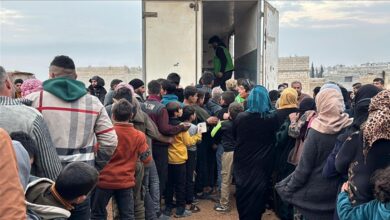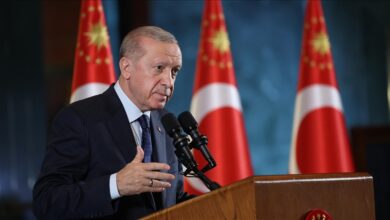
The United Nations calls into question the Assad regime’s destruction of its chemical weapons
The United Nations High Representative for Chemical Disarmament Affairs, Izumi Nakamitsu, announced on Tuesday that the United Nations is not sure of the complete elimination of chemical weapons in Syria, during her testimony to the UN Security Council.
Nakamitsu stressed the need to “implement the principle of accountability for everyone who used these weapons in Syria.”
Yesterday evening, the UN Security Council held a session via videoconference on the implementation of Council Resolution 2118 regarding the elimination of the Syrian chemical weapons program.
In her testimony during the session, the UN official said: “There are still 19 issues related to the Syrian chemical program,” and she explained that one of that is “a chemical weapons production facility (whose location has not been revealed), which Damascus has declared has never been used to produce chemical weapons, but our private information we have gathered. Since 2014 it says otherwise.
She added, “Our information indicates that the chemicals affecting the nerves were produced and prepared at this site (the chemical weapons production facility),” noting that “unless everyone who used chemical weapons in Syria is held accountable, the danger will remain for everyone.”
“We asked the Assad regime to disclose the types and quantities of these chemicals that have been produced, and as far as I know, the regime has not responded to our request,” Nakamitsu added, noting that the United Nations still considers the Assad regime’s announcement regarding the complete elimination of its chemical weapons program inaccurate .
The Security Council issued this resolution in September 2013 regarding Assad’s chemical weapons, following the massacre committed by the regime in Eastern Ghouta in August of the same year.
Article 21 of Security Council Resolution 2118 states that anyone who uses chemical weapons is criminalized, in accordance with Article Seven of the United Nations Charter.
This decision was issued after Eastern Ghouta and Muadamiyat al-Sham in Western Ghouta to Damascus, on August 21, 2013, were attacked by missiles carrying sarin gas and nerves, which resulted in the killing of more than 1,450 people, most of them children.
Source: Agencies




